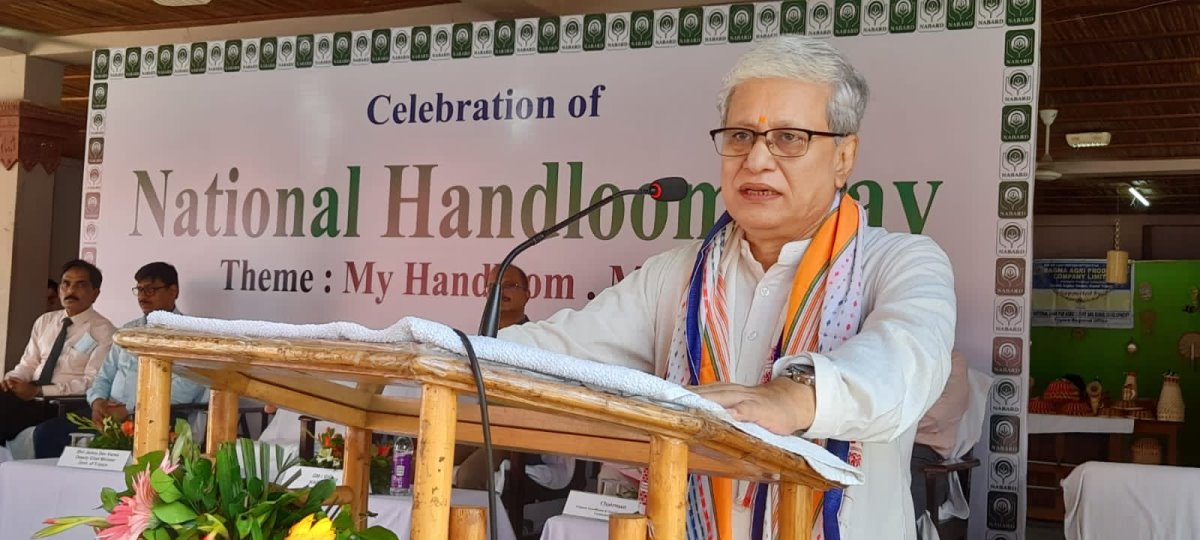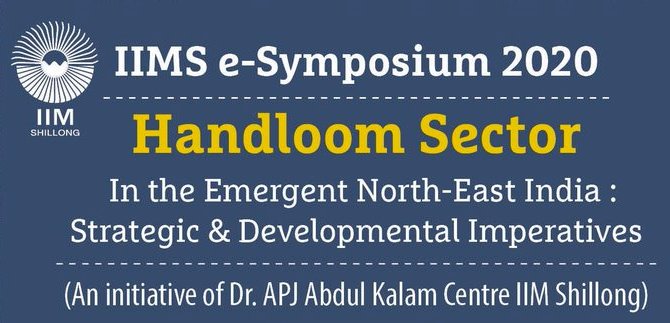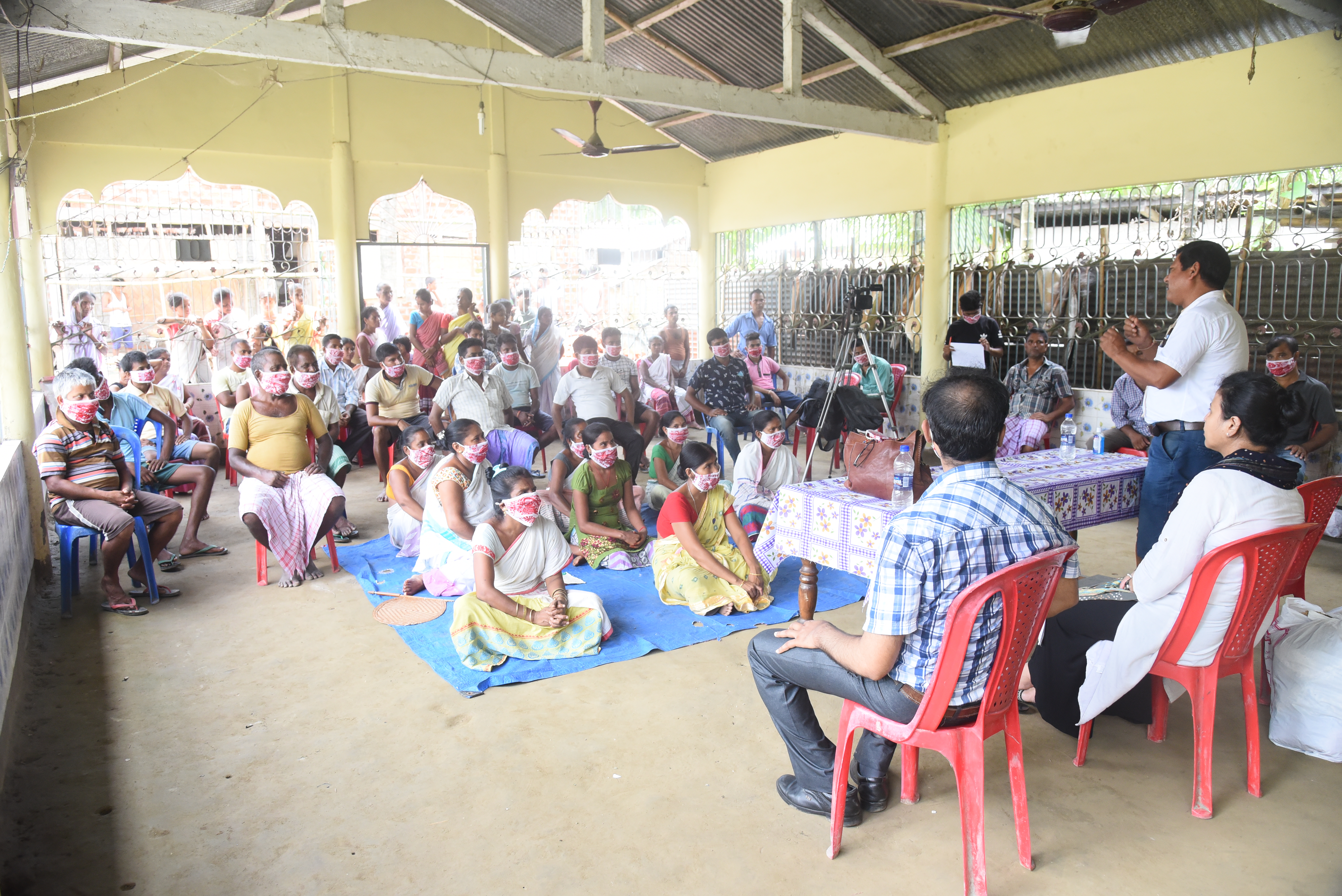As part of the efforts, a two-day training programme on handloom was organised by Aaranyak and British Asian Trust for a group of HEC-affected women from the West Garo Hills district of Meghalaya.Twenty-seven such HEC-affected women were trained on handloom operation in the training programme that was conducted at Bordubi LP School
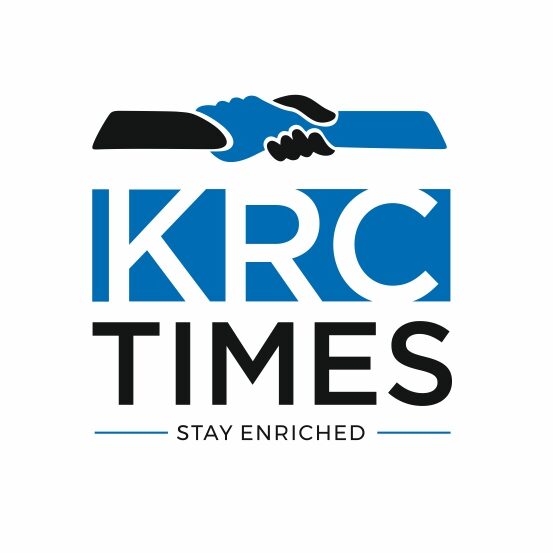 KRC TIMES NE Desk
KRC TIMES NE Desk
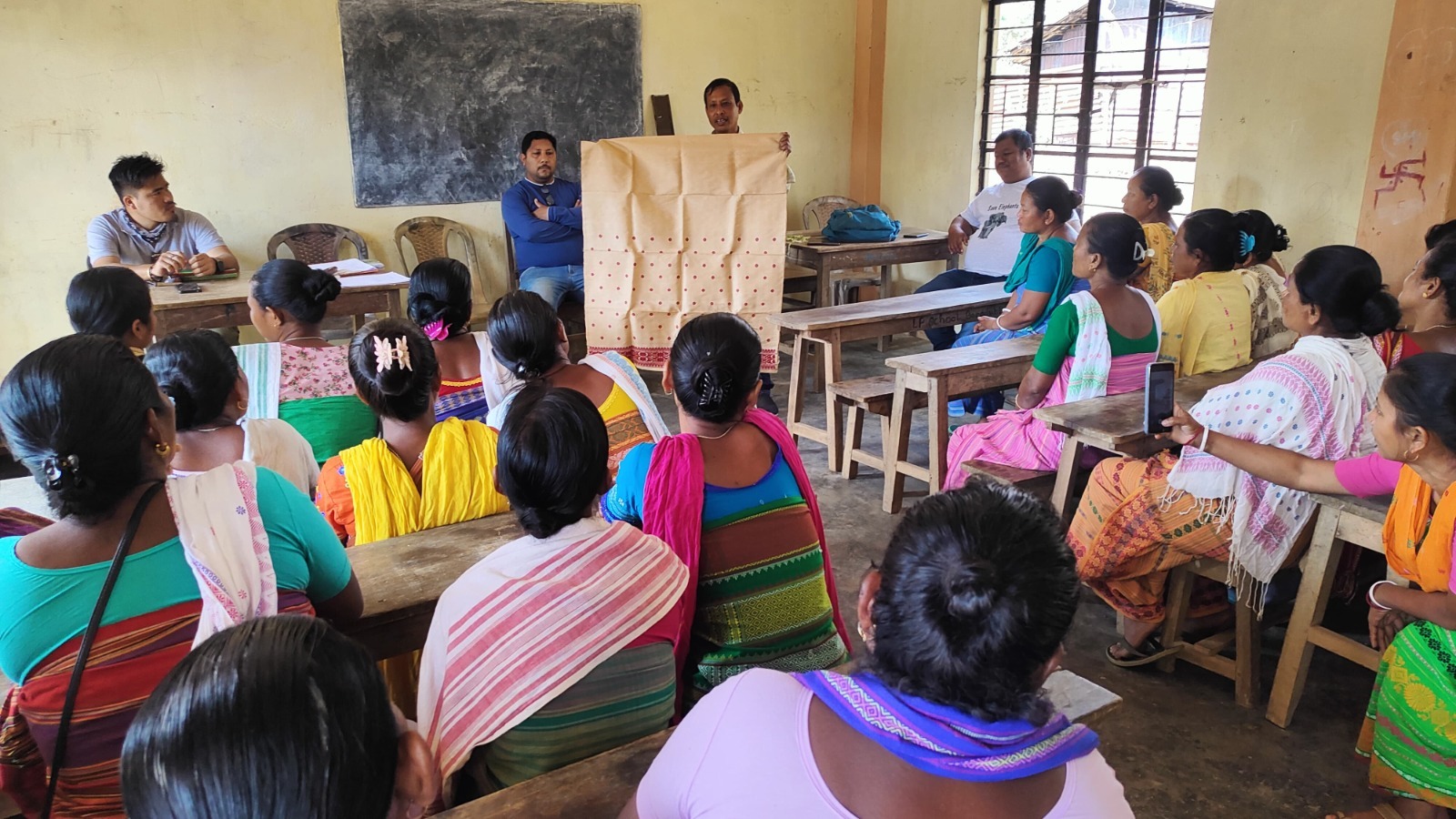
With the raging Human Elephant Conflict (HEC) having devastating impact on the principal and conventional livelihood options like agriculture of people in the affected areas, Aaranyak and British Asian Trust have collaborated to provide alternative livelihood options to womenfolk hit by the HEC in different parts of Assam and Meghalaya.
As part of the efforts, a two-day training programme on handloom was organised by Aaranyak and British Asian Trust for a group of HEC-affected women from the West Garo Hills district of Meghalaya.Twenty-seven such HEC-affected women were trained on handloom operation in the training programme that was conducted at Bordubi LP School in West Garo Hills as part of an ambitious human-elephant coexistence initiative.
This training aimed to build capacity and create livelihood opportunities for HEC-affected villagers so they could coexist with threatened Asian elephants.
“A training programme like this aims to equip women with the necessary skills so that they can sell their products in the competitive market and make sure that their products quality and design stand out from the rest. The focus is on creating unique designs that can add more value to their products and increase their profitability,” said Dr Bibhuti Prasad Lahkar, a senior conservation scientist in Aaranyak.
Aaranyak roped in Nadeswar Deka, an expert in handloom, to train the group of women on how to effectively market their products and augment their income by applying design principles.
Deka’s expertise and guidance enabled the women from Photamati, Bordubi, and Lower Kaersengdap villages to leverage their talents so they are empowered to supplement their livelihood.
In Assam and Meghalaya, one of India’s foremost biodiversity conservation organisation Aaranyak, in partnership with the British Asian Trust and with Biodiversity Challenge Funds, UK support is working collaboratively with local and indigenous communities to promote coexistence between humans and elephants. Aaranyak’ Nipul Chakma, Pranjit Borah, Swapan Das, Subash Chandra Rabha, along with village Champion, and the Nokma (village head) of Photamati village facilitated the programme.


